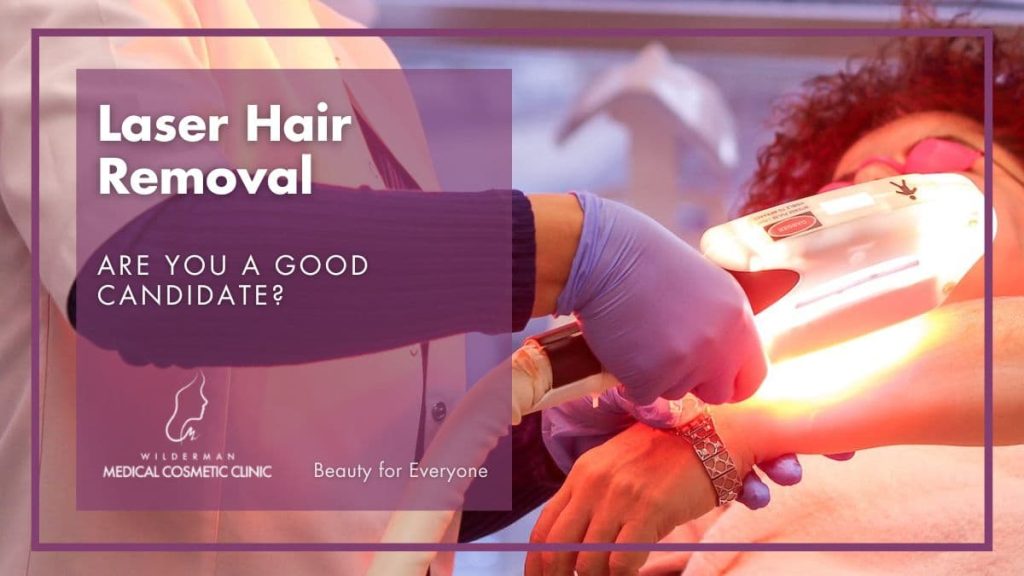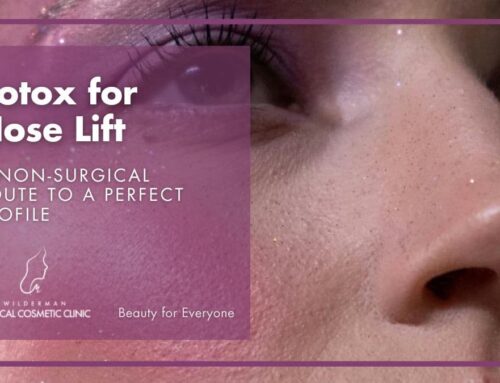Laser Hair Removal
Are you a good candidate?
Laser hair removal is a medical procedure that uses a concentrated beam of light, specifically a laser, to remove unwanted hair. The process works by targeting the pigment (melanin) in hair follicles.
The laser emits a light that is absorbed by the melanin in the hair, which then converts the light into heat. This heat damages the hair follicles, inhibiting or delaying future hair growth. The procedure is designed to be precise, targeting only the hair follicles while leaving the surrounding skin undamaged.

Get immediate answers to your questions about treatment options, costs, expected outcomes, and more.
- Expert Diagnosis
- Customized Treatment Plans
- No Obligation
- Comfort and Privacy
- Immediate Answers
Laser hair removal is commonly used to remove or reduce hair on areas such as the face, legs, arms, underarms, bikini line, and back.
It is important to note that while laser hair removal can result in long-term hair reduction, it may not permanently remove all hair. Maintenance sessions might be necessary over time.
It’s crucial to have laser hair removal performed by a licensed and experienced practitioner to ensure safety and effectiveness. Always consult with a qualified professional before undergoing any cosmetic procedure.
Are you a good candidate?
Laser hair removal is generally a safe procedure but it may not be suitable for everyone. Individuals who should avoid or delay the procedure include:
- Pregnant women: It’s generally recommended to postpone laser hair removal until after pregnancy.
- People with certain medical conditions: Conditions like polycystic ovary syndrome (PCOS) can affect the outcome. Discuss with a healthcare provider.
- Individuals with certain skin conditions: Skin conditions like psoriasis or active eczema can interfere with the procedure.
- People with light hair or dark skin: Laser works best on light skin and dark hair due to the contrast; those with light-colored hair may not see effective results.
- Individuals with a history of keloids or scarring: They might be prone to adverse reactions.
- Recent sun exposure or tanning: Laser treatment can be less effective and riskier on recently sun-exposed skin.
- Individuals taking photosensitizing medications: Certain medications increase sensitivity to light and might cause complications.
- People with infections or skin injuries: Active infections or skin injuries in the treatment area should be healed before the procedure.
- Individuals with a history of skin cancer: Consult a healthcare provider due to the potential risk.
- People with unrealistic expectations: Laser hair removal reduces hair but might not result in complete, permanent removal for everyone.
Always consult a qualified practitioner to determine if you are a suitable candidate for laser hair removal based on your circumstances and health history.
For whom would this treatment be suitable?
Laser hair removal is generally suitable for individuals who:
- Have unwanted hair in various areas: Suitable for individuals seeking hair reduction on areas like the face, legs, arms, shoulders, underarms, bikini line, chest, and back.
- Have dark hair: Laser targets melanin, making it more effective for people with dark, coarse hair and lighter skin.
- Have light to medium skin tones: Advancements in technology allow for the safe treatment of individuals with light to medium skin tones. People with very dark skin should seek experienced practitioners to avoid complications.
- Are in good health: Generally healthy individuals without underlying medical conditions that might interfere with the procedure.
- Are committed to the process: Laser hair removal requires multiple sessions for long-lasting results. Patients need to commit to the recommended treatment plan.
Benefits of Laser hair removal
Laser hair removal offers several benefits for individuals seeking a long-term solution to unwanted hair. Some of the key advantages include:
- Precision: Laser technology targets specific hair follicles, leaving surrounding skin undamaged.
- Speed: Each laser pulse takes a fraction of a second and can treat multiple hairs simultaneously, making it suitable for larger areas of the body.
- Long-lasting results: Many patients experience permanent hair reduction after a series of sessions, providing predictable and long-lasting results.
- Effectiveness: Laser hair removal is highly effective, especially for individuals with light skin and dark hair, although advancements allow treatment for various skin and hair types.
- Reduced ingrown hairs: Unlike shaving or waxing, laser hair removal reduces the occurrence of ingrown hairs.
- Convenience: Eliminates the need for constant shaving, waxing, or other temporary hair removal methods, saving time and effort in the long run.
- Customizable: Can be used on various body parts.
- Minimal discomfort: Modern laser systems come with cooling mechanisms, minimizing discomfort during the procedure.
- Reduced skin irritation: Unlike waxing or shaving, laser hair removal causes less skin irritation.
- Time and money savings: Over time, the cost and time spent on temporary hair removal methods can surpass the cost of laser hair removal, making it a cost-effective solution.
- Safe and FDA-approved: Laser hair removal procedures, when performed by trained professionals, are generally safe and have been approved by the U.S. Food and Drug Administration (FDA).
It’s important to note that individual experiences may vary, and multiple sessions are typically required for optimal results. Consulting with a qualified practitioner is essential to determine if laser hair removal is suitable for your specific skin type and hair color.
What are the precautions that need to be taken?
Taking proper precautions before hair removal is crucial to ensure the effectiveness of the procedure and minimize the risk of side effects. Here are some common precautions to consider:
- Consultation: Consult with a qualified practitioner to assess your suitability for the procedure based on your skin type, hair color, and medical history.
- Avoid sun exposure: Avoid sun exposure and tanning beds for a few weeks before the procedure, as it can increase the risk of complications.
- Avoid waxing or plucking: Avoid waxing or plucking, as the hair needs to be present for the laser to target it. You can shave the area.
- Discontinue certain medications: Inform your practitioner about any medications you are taking, and follow their advice regarding discontinuation of certain photosensitizing medications.
Are there any side effects?
While laser hair removal is generally considered safe when performed by trained professionals, it can have some side effects. Most side effects are temporary and resolve on their own, but there is a potential for more serious reactions. It’s crucial to discuss the potential side effects with your practitioner and follow their aftercare instructions. Common side effects may include:
- Redness and swelling: Mild redness and swelling in the treated area are common and typically subside within a few hours to a day.
- Skin discomfort: Some people may experience temporary discomfort, tingling, or a sensation similar to a sunburn.
- Pigment changes: Changes in skin pigmentation, such as darkening or lightening of the skin, can occur. These are usually temporary but may be more common in individuals with darker skin tones.
- Blistering and crusting: In rare cases, blisters or crusting may occur, particularly if the treatment is not done correctly or if aftercare instructions are not followed.
- Scarring: While uncommon, scarring is a potential risk, especially if the skin is not properly cared for after the procedure.
- Infection: There is a small risk of infection, particularly if the treated area is scratched or if proper hygiene is not maintained.
- Changes in skin texture: Rarely, laser hair removal may cause changes in skin texture, making it smoother or, in some cases, coarser.
- Pigmentary laser injury: In some cases, excessive heat from the laser can cause hyperpigmentation (darkening) or hypopigmentation (lightening) of the skin.
If you experience persistent or severe side effects, it’s important to contact your practitioner promptly. They can guide managing side effects and determine if any additional intervention is necessary.
Conclusion
Laser hair removal offers a precise and effective solution for long-term hair reduction. By targeting and damaging hair follicles, the procedure provides a convenient alternative to traditional hair removal methods.
While individual experiences may vary, adherence to proper precautions, aftercare, and multiple sessions can lead to satisfactory and enduring results. Consulting with a qualified practitioner is essential for personalized recommendations and a safe, successful laser hair removal experience.
Reference
Gan SD, Graber EM. Laser Hair Removal: A Review. Dermatologic Surgery. 2013 Jun;39(6):823-838. doi:10.1111/dsu.12116.
Ibrahimi OA, Avram MM, Hanke CW, Kilmer SL, Anderson RR. Laser hair removal. Dermatologic Surgery. 2011 Jan-Feb;24(1):94-107. doi:10.1111/j.1529-8019.2010.01382.x.
American Academy of Dermatology Association. Remove Unwanted Hair. Retrieved from https://www.aad.org/public/everyday-care/skin-care-basics/hair/remove-unwanted-hair. Accessed on Nov 11, 2023.
Mayo Clinic. Laser hair removal: Overview. Retrieved from https://www.mayoclinic.org/tests-procedures/laser-hair-removal/about/pac-20394555. Accessed on Nov 11, 2023.
Healthline. How to Remove Hair Permanently: Methods, Safety, and More. Retrieved from https://www.healthline.com/health/how-to-remove-hair-permanently#hair-removal-options. Accessed on Nov 11, 2023.
WebMD. Hair Removal: Methods, Costs, and Side Effects. Retrieved from https://www.webmd.com/beauty/cosmetic-procedures-hair-removal. Accessed on Nov 11, 2023.
Related content that may be of interest
Laser Hair Removal Treatment: To Permanently Eliminate Body Hair – Unwanted body hair is a concern for many individuals. While various temporary hair removal methods exist, such as shaving, waxing, and threading, they often come with their fair share of hassle and discomfort.
Laser Hair Removal vs. Electrolysis: Making the Right Choice for Hair Removal – Unwanted hair can be a persistent issue for many individuals, leading them to seek effective and lasting solutions. Two popular methods for hair removal, laser hair removal, and electrolysis, stand out as long-term solutions.
Stay Ahead of the Beauty Curve
Beyond Beauty: Elevate Your Routine with Insider Tips and Breakthroughs – Subscribe Now!
Transform your beauty routine into something extraordinary!






